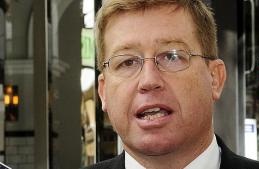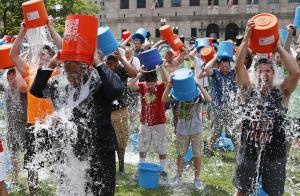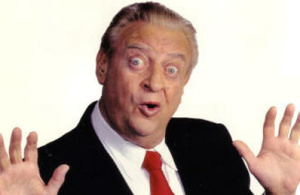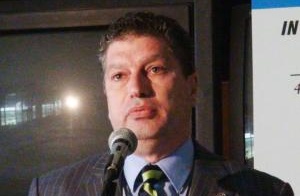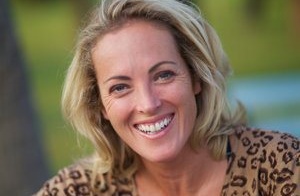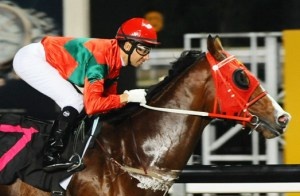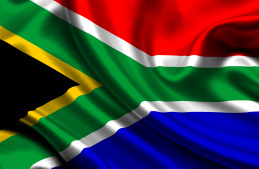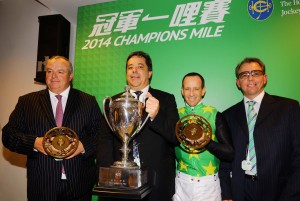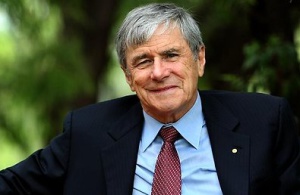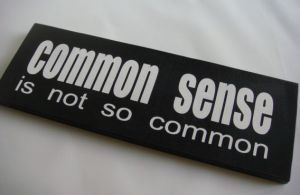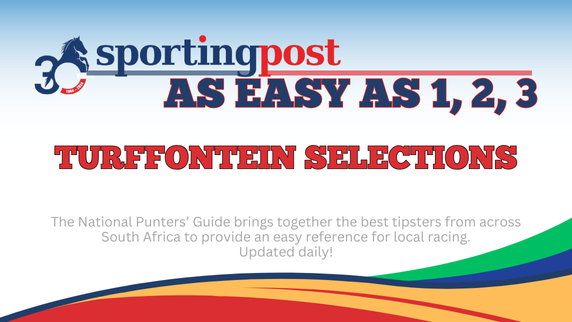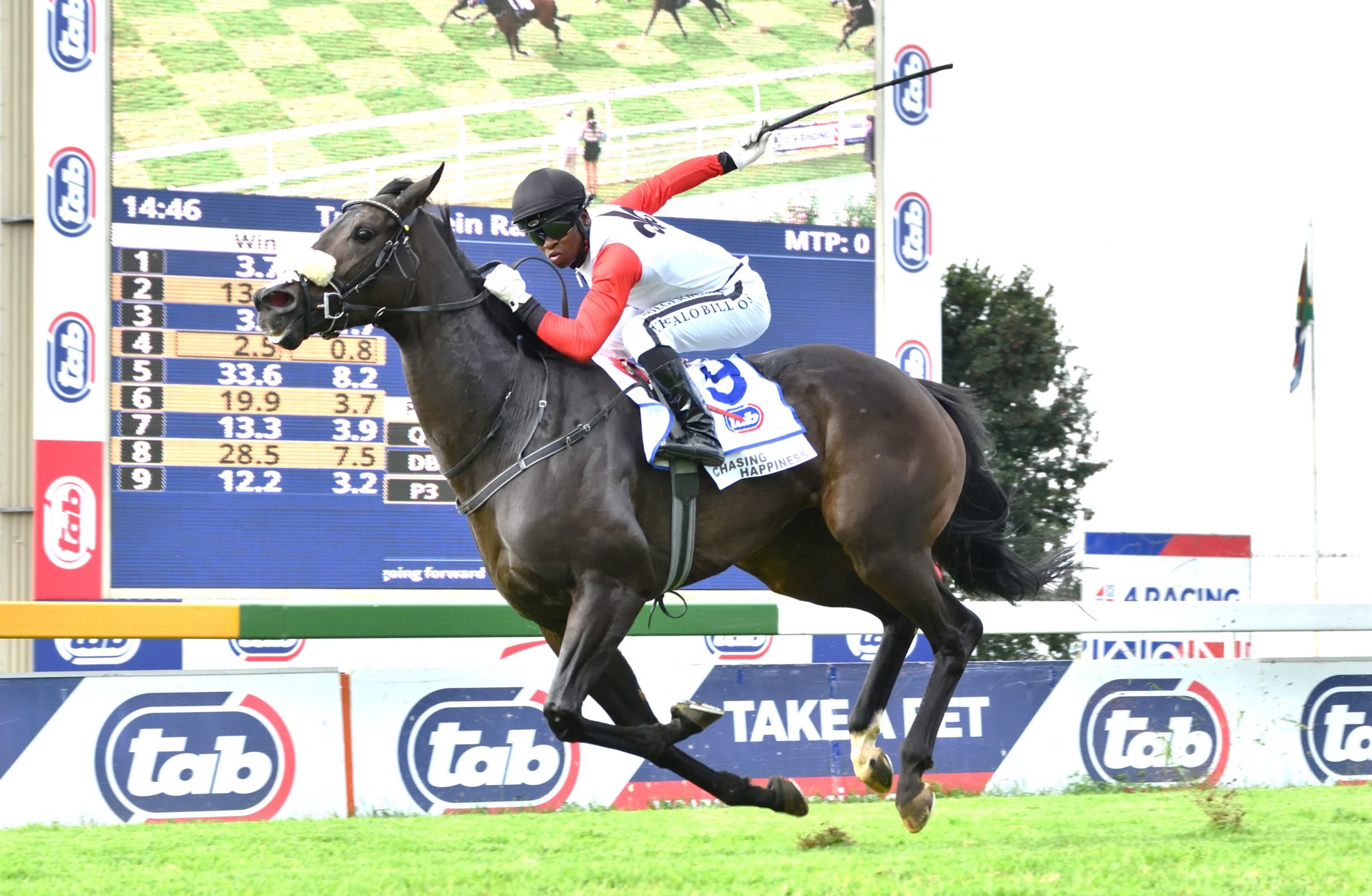RACING MINISTER FLEXES HIS MUSCLES
NSW Racing Minister Troy Grant, below, should be commended for ensuring that the Provincial and Country sectors of NSW racing will not continue to be forgotten in the indecently hasty scramble to make the Championships an exclusively metropolitan and Sydney-centric carnival.
The Provincial and Country Championships Series where selected provincial and regional racing venues will host $100,000 races eligible only to horses trained at those particular centres or regions and culminating in two $300,000 Finals – one for the Provincial and one for the Country during the Championships next Autumn has the personal fingerprints of the Racing Minister all over them.
Importantly, the prize money will come out of the State Government funding for the Championships – very important in that it would, probably, otherwise have made an even greater obscenity of the prize money for the feature races during the carnival. The harsh reality is that the Provincial and Country Sectors in NSW have been neglected and unfairly treated by the city-centric administrators for decades.
It is inexcusable that the Newcastle carnival, for instance, one of the best in provincial NSW over a very long period of time, has been forced to take a significant prize money “haircut”, whilst unnecessary and wasteful bucket loads- another weird Ice Bucket Challenge?- of cash are thrown at races during the Championships that will fail to attract any better quality of thoroughbreds with even as little as a $50,000 or $100,000 reduction in prize money.
What these decision makers choose to ignore and often conceal is that black type races don’t need wads of cash thrown at them to attract the quality of horses that compete in them. Black type is the lifeblood of the breeders and serious investors in racehorses. Winning a black type race adds immediate residual value to racehorses- often far in excess of what they might earn on the racetracks in Sydney or Melbourne.
Obscene and imbalanced prize money for these races is just another way of rewarding those that don’t need to be rewarded. It is one of the major reasons why Australian racing does not command the respect that it deserves from the rest of the world and is more and more and more seen as The Rodney Dangerfield Of Racing.
One cursory glance at the schedule of black type races in each season demonstrates that there are an excessive number of black type races – thanks to the breeder-dominated and disproportionately-influenced Australian Pattern Committee. It was no surprise just last year when the Pattern Committee recommendation to elevate a swag of races to black type status, which included a number of existing black type races promoted to their next level within the Group and Listed system, was rubber stamped with some flawed international criteria used as its justification.
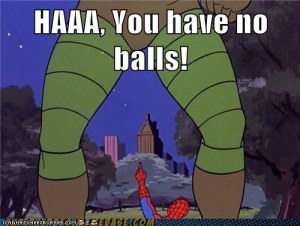 Self-interest, as always has been and forever will be the single motivator in the racing decision making process. Not unlike politics, where policies are always ostensibly implemented for the greater good of the nation, it’s always the “greater good” of racing that is pathetically wheeled out as the raison d’etre for change and so-called “ initiatives”.
Self-interest, as always has been and forever will be the single motivator in the racing decision making process. Not unlike politics, where policies are always ostensibly implemented for the greater good of the nation, it’s always the “greater good” of racing that is pathetically wheeled out as the raison d’etre for change and so-called “ initiatives”.
Sounds better than having the balls to say that we are going to introduce changes to protect and promote our own self-interest, doesn’t it?
The HKJC and Its Season of Change
The new Hong Kong racing season will be an important one as it gets underway at a time of great change in the city with the stop-start-stop comedy of errors that is/was Occupy Central set for October 1 by painfully naive Pan Democrats trying to- oh, please- intimidate Beijing.
This became even more farcical on Monday when, after a visit to Hong Kong by a top ranking Beijing official, the wunderkind of that movement made a quick U-turn, saying he’d made a mistake and won’t be turning up for his own sit-in.
So much for protest movements in Hong Kong, and, hopefully, something for all those gullible hacks who write about every Zeng, Ziang and Dickman, “bringing horse racing to Mainland China”, to think about: Without the Chinese government on your side- and their approval- nothing happens.
Meanwhile, in Hong Kong, there’s an even greater chasm between the Haves and the Have Nots fuelled by rising rents, greedy landlords and a pandemic of arrests for corruption involving high-powered businessmen and former government officials. Gawd knows, Hong Kong needs those Happy Wednesday nights back again at Happy Valley Racecourse to put a smile back on its face.
Of course, this will also be a season of change for Hong Kong racing and the HKJC under a new Chairman- Simon Ip having taking over from the tenure of Brian Stevenson. The loudest whisper for the past five years that Bill Nader, Executive Director of Racing, will be leaving- remember the one involving him taking up the Breeders Cup gig “back in the day”, and more recently, him taking up an elevated position in Dubai- looks like finally happening with him said to be happily riding off into the sunset at the end of the season. Many will reflect on the American’s contribution to Hong Kong racing other than firework displays, jockeys in golf carts, safe soundbites and a firm handshake and ready smile, and come to their own conclusions.
They can reflect all they want, but like most brought out here by companies on expat packages, Billy boy leaves Hong Kong a far richer man than when he first arrived. Wherever he might end up- other than the ski slopes of Aspen, or wherever they ski in the US- would be a paltry bonus to his “pension fund” collected over the years in Hong Kong. Nice work if you can get it, and nice guys don’t always end up last. Keep your head down, don’t make waves, don’t rock the boat, and, as the song goes, “Billy, don’t be a hero”, and all will be smooth sailing.
Other executive changes are tipped before the season ends while on the smaller end of the totem pole, Jo McKinnon quietly left Hong Kong, and is said to have taken up a PR post at Racing Victoria. Who and what and how this might- if it will at all- impact the racing programming product, time will tell, but those changes really need to happen sooner rather than later as viewers have been traveling with Thunderbirds Are Go puppets sets and production values for way too long. At the very least, the English content needs a major facelift if it’s ever going to be more than wallpaper viewing hosted by talking wobble heads.
On the racing front, Zac Purton, the Kanye West of racing, returns to defend his title as Champion Jockey with many still cringing thinking back to when he blurted out on a HKJC-produced programme that the highlight of his Hong Kong Championship winning season was actually winning The Doncaster in Sydney. Being candid and firmly putting one’s foot in the mouth often go hand-in-hand. Just ask Kanye West.
Meanwhile, Joao Moreira aka The Magic Man, returns after an incredible cameo appearance in Singapore recently where he rode something like seven winners out of twenty rides just to get that magic wand ready to sprinkle more angel dust.
Douglas Whyte is back after trampling grapes and making his own wine in his vineyard in Tuscany plus taking his daughter to Colorado where they met Monty Roberts, the original Horse Whisperer, and not the Sideshow Bob version in the UK.
Nash Rawiller begins his stint in Hong Kong on the 21st after a quick trip Down Under to ride Silent Achiever, which he’s certain to ride in the Cox Plate, and maybe even the Caulfield Cup, whereas “Kanye” and “The Magic Man” are said to have confirmed rides in The Melbourne Cup.
All in all an interesting few months lie ahead with some rather colourful names in the racing world making lightning quick trips to Hong Kong on various scouting expeditions to try and tap into what, in essence, is the HKJC’s “client roster”- and which is not easily pried away.
Enter The South Africans !
Like a Dale Steyn thunderbolt which has been known to shake, rattle and roll a batsman, staring at him down the crease, the South Africans have managed to do just that to the recent premier sales of yearlings in the UK and France. Buying the top priced seriously well-bred lots, a group of wealthy South African investors headed by Markus Jooste of Variety Club fame, have well and truly announced their arrival in the ultra competitive “sport of kings” environment that horse racing has morphed itself back into in Europe. In business circles, the Jooste name is one of the biggest players in the land of the Rand.
Markus Jooste has also been one of, if not the biggest player in South African racing for some time now. Linking up with fellow South African Mike De Kock, a world renowned trainer with whom he has enjoyed global carnival success at the highest level this year with Variety Club, Jooste’s appetite for being a serious player on the biggest stage of world racing that European racing is, has been well and truly whetted.
For Jooste and his band of investors, there is now no turning back. The expensive purchases will not go back to be trained in South Africa. They will be trained in France and the UK by yet to be named leading trainers, and they will compete with the European racing power houses and the wealthy Arab ruling houses that have collectively dominated the European classics over the past decade or more. And the major point of difference between the “old world”, that is European racing and the emerging new world in Asia, and to a lesser degree Australia, is that in Europe, the new cashed up players enter racing for the long haul.
Racing to them is neither a “fad” nor a “me, too” exercise. Their interest is long term. Racehorses and racing are not toys that you grow tired of after the novelty of owning them has worn off. Their advisors know their business backwards. They have an encyclopaedic knowledge of racing – its rich and colourful history, its pedigrees, its templates, how it ticks and why it does not tick.
It’s the missing link with the wealthy Chinese and Asian owners whose racing knowledge can be written on the back of a postage stamp, and whose interest and involvement centres around bragging rights over regular twenty course Chinese banquets where the most expensive wines are “Gum Bay-ed”- sometimes with Coke and ice cubes- with their equally seriously wealthy mates in a highly charged and competitive environment.
Converting their enthusiastic entry into racing to a permanent involvement in racing remains one of the biggest challenges facing racing as seen by the initial impact of Sun International Racing on Australian racing, all the hype surrounding the company’s Desiree Chang, who promised much, but has delivered- and purchased- so little. In fact, she’s almost MIA- and which has some we know crying, Mamma Mia.
Seven Networks Play for Racing Vision
Andrew Webster’s piece in Friday’s Sydney Morning Herald titled “Seven set to take a big punt on racing “ is strong if not conclusive evidence that the dramatic winds of change that have swept through both the presentation and monetization of sport and its intellectual property, are now about to leave a dramatic and permanent impact on racing.
The Seven Network is Australia’s most profitable, if not the only profitable television network – free to air or Pay TV in Australia.
Where its competitors are literally on their knees, financially, and from the intense competition and dramatic changes that technology has forced on the delivery of sound and vision to customers, the Seven Network, single handedly under the control of Kerry Stokes has gone from strength to strength.
The Seven Network has based most of its success and dominance on sport. To many it has appeared to pay over the odds for rights – the Olympics – winter and summer, the AFL, Tennis and the list goes on. In reality it has not.
The commercial returns from advertising revenue have proven that Seven has done its mathematics. And done them very, very well, at a time when advertising revenue is declining at similar speeds to the popularity of free to air as the deliverer of sound and vision.
Seven took a punt on racing not all that long ago when it ambushed TVN with exclusive rights to the VRC Spring Racing Carnival. It hasn’t looked back. Despite what those at Druitt Street and the ATC may believe in their own delusional way, the Spring Racing Carnival is the only game in town when it comes to racing.
The Seven Network has since expanded its inroads into the free to air broadcast of racing, and with their second and third networks on Pay TV and HD, are in direct competition with Sky and TVN- though they are taking the TVN feed for their broadcasts through their 7TWO Channel which is now broadcasting each Saturday. Andrew Webster’s piece suggests that the Seven Network has its eyes on the long-term acquisition of a wagering licence to complement a potential deal with TVN to expand its viewing audience into free to air TV through the Seven Network’s digital channels. It makes sense.
It also poses the question as to the future of Sky, and, in the bigger picture scheme of things, both Tab and Tattersalls as the pari-mutuel wagering partners of Australian racing. The shift to fixed odds and corporate wagering products plus on-line wagering is irreversible. It has implications – serious ones, for wagering. And not just in the land down under.
(with kind permission and thanks to Racing B*tch)


